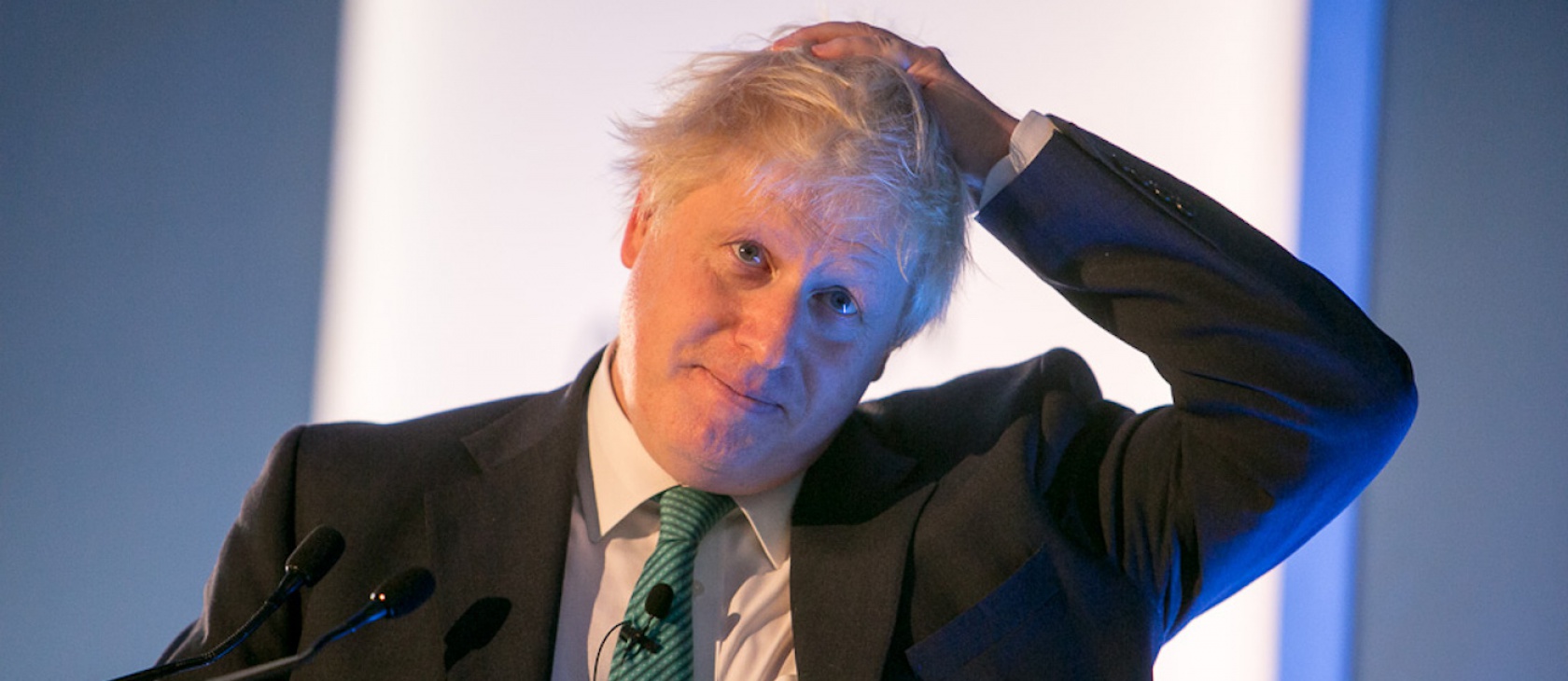Boris Johnson has lost his first four votes in Parliament, setting back the likelihood of leaving the European Union on October 31 and holding a general election that would strengthen those who support free trade. This has important lessons for people of faith.
The business motion
In a debate in the House of Commons on Tuesday, September 3, Prime Minister Boris Johnson declared that there were no circumstances in which he would seek an extension to Article 50 from the European Union, which presently means leaving the EU on October 31. But a group of anti-Brexit MPs from all parties moved a lengthy and highly complex “business motion” running to multiple pages, overturning decades of Parliament’s precedents and procedures. They were only able to do so because the House of Commons Speaker, John Bercow, ignored Parliament’s own standing orders, which state that any debate under this particular procedure had to be in neutral terms (“that this House has considered”) and hence excludes business motions.
The “business motion” passed by 327-300. Some 21 anti-Brexit Conservative MPs voted against their own government in order to frustrate British departure. (Two brave Labour MPs voted with the government.) With extraordinary, yet admirable, backbone the Conservative leadership expelled from the Conservative Party those who think they can simply ignore the clearly expressed will of 17.4 million people – the largest vote in British political history –and ordered their local associations to start the process to select replacement candidates. The group included two former Chancellors of the Exchequer, including the most recent one, Philip Hammond, who clearly did not believe the expressed policy of the government which he served. In recent European elections the Conservative Party polled nine percent, as voters defected in their millions to the Brexit Party of Nigel Farage (who polled 31 percent). Failure to exit the EU would be catastrophic for the Conservative Party.
The opponents of Brexit then had the right to introduce a bill.
The rebel bill and its prospects
On Wednesday, September 4, the “rebel alliance,” as they have become known as, introduced the European Union (Withdrawal) (no 6) Bill. Brexiteers including Boris Johnson call it “The Surrender Bill.” The draft legislation requires the government to seek an extension to Article 50 (thus delaying the UK’s exit) unless the House of Commons has agreed by October 19 to a Brexit deal or approved legislation to leave without a deal. The effect is to rule out a no-deal Brexit, as there is a clear Parliamentary majority against exiting on World Trade Organization rules. The bill requires the Prime Minister to seek an extension, specifies the form of the letter he must send, and indicates that if the EU offers an extension, he must accept it irrespective of any of the conditions attached.
The extraordinary bill passed the House of Commons by 329-300.
The last stage before any bill becomes law is Royal Assent. This is the technical approval of the Queen which is given on the advice of ministers. The last time Royal Assent was refused was 1707. Boris has shown the backbone to flout tradition, although if he recommended royal refusal, he would undoubtedly unleash extensive legal action, which he would likely lose.
Boris opted instead to press for an election, again without success so far.
Boris moves for an election
Boris informed Parliament that if the Brexit delay bill was passed it would fundamentally destroy the British negotiating position in seeking an improved deal and that, in such circumstances, the only real option was to hold a general election.
Enter, the Fixed-Term Parliaments Actof 2011.This act, forced upon the then-ruling coalition government of the Liberal Democrats and Conservatives by the Lib-Dems, allows for an early general election (that is, between fixed five-year intervals) in one of only two circumstances:
- A government is defeated on a formal vote of confidence in the House of Commons and fails to gain the confidence of the House in another formal vote within 14 days; or
- A vote in the House of Commons for an early general election, supported by two-thirds of all MPs.
Boris Johnson moved a formal motion on Wednesday evening calling for a general election on October 15. The opposition Labour and Lib-Dem parties, despite calling for an election, on an almost weekly basis, voted against the election bill on the grounds that the “timing” was wrong.
However, the Labour Party is split. Jeremy Corbyn, the party leader, and the most left-wing leader of any mainstream political party in UK history – a man who has entertained terrorists in Westminster and allowed anti-Semitism to run rife in his party – wants an election as soon as possible. His economic policies would include the state ownership of the means of production (specifically the nationalisation of rail companies, and water and other utility companies), high levels of taxation, and a massive expansion of public expenditure. There are many in his party who think he would lead them into a stinging defeat. In addition, there are several dozen Labour MPs representing Leave voting districts whose constituencies would be attracted to Johnson.
The vote, when it came, was 298 in favour of an election, 56 against, and the Labour Party abstained, so it fell short of the 434 votes needed. Thus, no general election has been approved, yet.
What happens next?
Now that the rebels’ bill has passed and there is not yet a date for a general election, Boris Johnson’s options are:
- Refuse Royal Assent to the extension bill;
- Introduce a one-line bill for an election (“notwithstanding the Fixed-Term Parliaments Act an election will be held on 15th October”) which would require only a bare majority to become law. The problem for Johnson is, he does not have a majority, even of one MP. He would have to woo enough opposition MPs to pass the measure;
- The government could move again for an election if the extension bill becomes law and expose the Labour Party’s internal split;
- The government could move a motion of no confidence in itself. This would produce the anomalous result that the Conservatives would vote for no confidence in their own government to trigger an election, whilst the opposition mostly votes that it has confidence in Boris Johnson’s government;
- Boris simply ploughs on and ignores the provisions of the extension bill, which seems unlikely as he would likely lose the resultant legal actions; or
- The previous Withdrawal Agreement, negotiated by Theresa May, might make an unexpected comeback.
The most likely scenario is a general election, probably before October 31. Boris should win relatively easily against a pro-EU and divided opposition. The latest polls have the Conservatives at 35 percent, Labour at 25 percent, Liberal Democrats at 15 percent, and the Brexit Party at 12 percent. This is likely to translate to 43-to-45 percent for the Conservatives if they scoop up most of the Brexit support. Johnson would gain scores of electoral districts in the British midlands that voted Leave but normally vote marginally for Labour. Once back in power, without the Remainer rebels, Boris would repeal the extension bill and ratchet up pressure on the EU for greater access to the European Single Market.
However, I have to confess I am nervous. We have been here before. Theresa May went into the 2017 general election with a 20-point lead over Corbyn and squandered the entire lead in one of the most appalling election campaigns ever. Boris is a good campaigner, but he is gaffe-prone and tends to bluster. However, his strong position will draw Leave voters to Boris’ standard, staunch Leavers will be appalled by the abuse of democracy that they have witnessed these last days, and even many Labour voters will decide they do not want Corbyn in 10 Downing Street.
Lessons for Christians
The extraordinary events unfolding in the UK Parliament should remind us all of two important truths. First, we have to continually make the case for economic liberty and free trade. The EU customs union embodies neither. But Brexit sets us free to pursue trade deals that will benefit us and the developing world. Second, there is an inextricable link between economic and political freedom. European supranationalist interventionists are trying to trap the UK in the EU via the backstop. And it seems no accident that the Brexiteers most strongly asserting UK independence from Brussels also deeply embrace free trade.
Those of us who believe both economic and political liberty reflect a view of human nature in the highest accordance with Christian anthropology must never back down from these truths, regardless of political success or defeat.
(Photo credit: Chatham House. This photo has been cropped and transformed. CC BY 2.0.)




